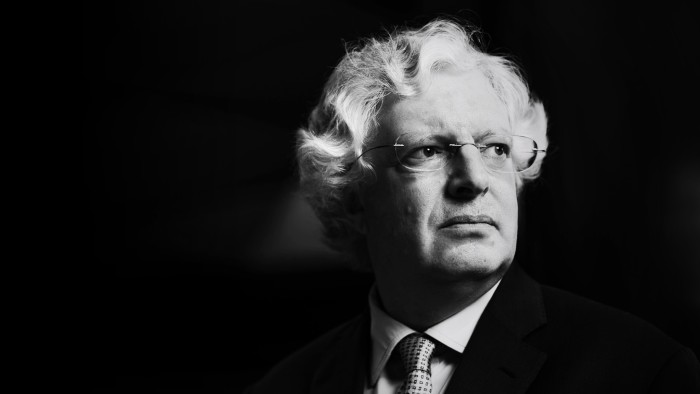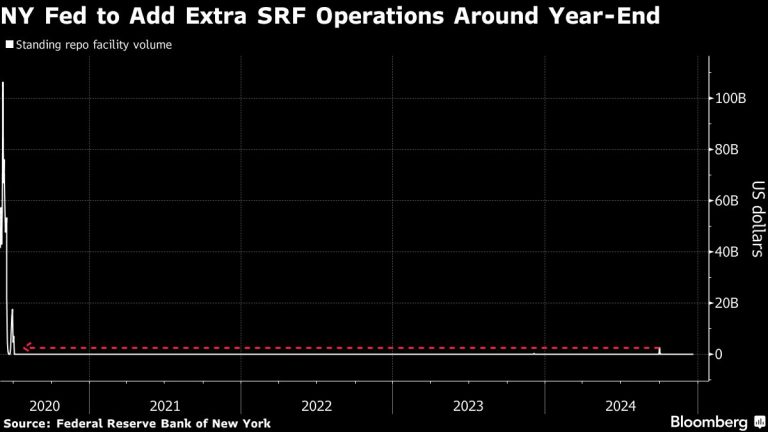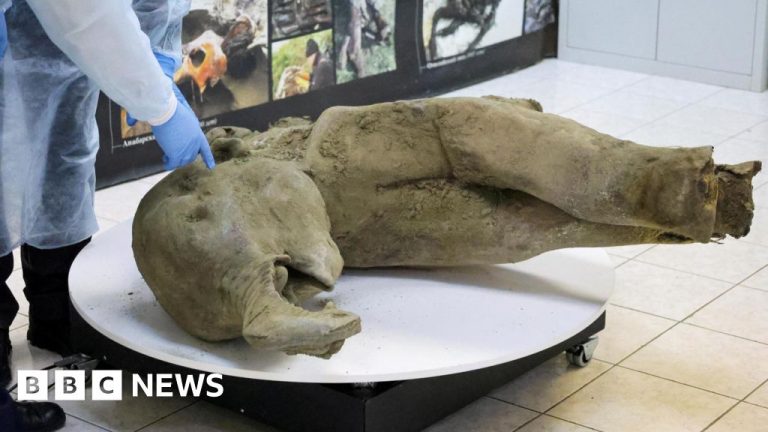When Guy Hands announced he was stepping down as chair of Terra Firma last year, one of the UK’s most tenacious dealmakers indicated he was starting a new, more-benevolent chapter. “Guy wants to change the focus of his life,” the private equity firm said of its founder’s plans to devote himself to philanthropy. While still controlling Terra Firma-backed businesses, such as property group Annington and McDonald’s restaurants in the Nordics, Hands identified diversity, inclusion and mental health initiatives as his charitable aims.
In the mid-1990s, Hands kick-started the UK private equity boom, becoming a billionaire and one of the country’s most influential financiers. But his reputation was later bruised by business failures, costly legal feuds and caustic public recriminations.
Just last week, the UK’s Ministry of Defence paid Annington £6bn to take back thousands of military homes, after years of legal wrangling. For Terra Firma, the deal looks like a win. For the government and taxpayer, it was “one of the worst-ever” deals, according to the UK defence secretary.
Hands’ retirement announcement last year was in line with a renovation of his reputation that had begun several years earlier. In his 2021 memoir, The Dealmaker: Lessons from a Life in Private Equity, Hands vowed to reform both his personal habits and “philosophy of business”. His purpose, he wrote, would become “to leave the world a better place”.
One example was Mansfield College at Oxford university, to which he and his wife donated millions of pounds over the years. This largesse provided the funds for The Hands Building, a glass and stone structure combining student housing and the university’s human rights institute. The annual Hands Lecture, which takes place there, welcomed speakers including Sir Bob Geldof and Lord William Hague, a close friend of Hands, who is now Oxford’s chancellor.


But two dozen former employees and business associates described a different side of Hands to the Financial Times. The individuals, who worked for Terra Firma between 2002 and 2023, variously accused him of screaming and raging at staff, humiliating underlings and repeatedly telling sexually explicit stories at work. The FT has also seen WhatsApp exchanges, dated from 2019 to 2023, between employees in which they discuss Hands “pushing us all to the edge”. In one, a woman says she is “scared to be alone” with him, after he reduced her to tears.
Former employees spoke to the FT on the condition of anonymity for fear of reprisal. Many said they felt Hands’ recent positioning as a philanthropist and mental-health advocate was hypocritical, given the way he treated them. “People know they’re signing up for long hours, hard work and no boundaries,” said one former employee. “No one signs up for bullying and sex talk.”
One junior employee, who left Terra Firma in 2020, said Hands told her privately that he loved reading about sadomasochism. “He was talking about how he’d really recommend Story of O, that Fifty Shades of Grey was essentially really amateur, introductory stuff. It wasn’t hardcore enough for him,” she said. Story of O is a 1954 erotic novel about a female photographer who is trained to be a sex slave by her lover.
The accusations make Hands the latest high-profile UK figure to be accused of failing to reform their workplace behaviour. “There has been this culture for 25 years in the City of people like that, and they’ve just gotten away with it,” said one former senior male colleague of Hands. “His story is one of the industry.”
This year, the Financial Conduct Authority, the City’s regulator, launched efforts to improve how complaints of bullying and other non-financial misconduct are dealt with. Since October, all UK companies have a legal obligation to anticipate and prevent sexual harassment in the workplace.
Terra Firma is now run by Hands’ son, Richard, whom employees said was well-liked and had a notably different management style. A statement provided by the company read: “We have always regarded the wellbeing of our people as our top priority. To be clear, there is no place for bullying, intimidation or inappropriate conduct of any kind at Terra Firma and there never has been.”
It added that Terra Firma had “robust processes and whistleblowing mechanisms in place” and that “issues of this nature have and will always be treated seriously and confidentially, and our people have been made aware of how to escalate them.” The company maintains that its HR function worked well and that it was never notified about the allegations against Hands referred to in this article.
When allegations were put to them for comment prior to publication, lawyers for both Terra Firma and Hands said that “this story in no way reflects the culture of Terra Firma now or in the past”.
In his memoir, Hands described a difficult childhood. He was dyslexic and dyspraxic, he wrote, making him a target for bullies and for corporal punishment at school. He also recounted being sexually abused by his piano teacher.
After attending Oxford, Hands eventually landed at the London outpost of Nomura in 1994. The Japanese bank welcomed his idea to mimic US firms, using cheap debt to buy European businesses with untapped potential. By 2002, a string of successes convinced Hands to go it alone. “I [wanted] to create a private equity firm to rival — and surpass — the greatest of the US giants,” he wrote about founding Terra Firma.
In London, potential Terra Firma recruits were put through a rigorous process to prove themselves: a string of interviews, numerical and verbal reasoning tests, and psychometric analysis. Those who made the cut found themselves at the heart of the private equity boom. “It was intense . . . exciting, intellectual, egalitarian,” said one former senior director who worked there in the early years.

But Hands was a taskmaster with a temper, and he expected staff to match his work ethic. It was “danger money”, the same person recalled. “You are paid for the hours you keep, for the tough talk . . . He was not a tyrant but was definitely autocratic.”
According to employees, Hands was unpredictable: “charming and charismatic” at one moment, “harsh [and] domineering” the next. Seemingly minor incidents could trigger him. “There was a culture of fear and trepidation around Guy, particularly around what kind of mood he’d be in,” a former human resources director said.
Several former employees likened Hands’ conduct to that of an impulsive child. “He’s like a little boy who wants to prove himself,” one said. That often manifested in sexually inappropriate stories and explicit comments. “People would be quite horrified, women would definitely be offended,” a senior male former colleague said. “He used to think it was amusing. It wasn’t.”
At other times, staff said, Hands raged. “There were probably countless meetings where he internally just lost it,” said a different former senior director, who worked at Terra Firma for a decade. “A billionaire shouting at a 22-year-old analyst who has just come from university about how stupid that person is.”
Former employees who spoke to the FT said they felt they did not have recourse to Terra Firma human resources. “The idea of somebody coming to the human resources director wanting to make a complaint about Guy was inconceivable,” the former HR director said. “He ruled everybody with a rod of steel.”
There were upsides to Hands’ idiosyncratic leadership. Staff were picked from diverse backgrounds and juniors were exposed to high-level decision-making unheard of at other private equity firms. Beyond lucrative pay packages, employees said Hands could be personable and mentoring. “There were instances when he really made people feel like family and supported them,” another former director said.
In a statement to the FT, Hands said he “founded Terra Firma on the principle that all voices would be heard. I deny ever having been a bully, a tyrant or behaving inappropriately, but in this environment there were times when tempers were lost, voices raised and comments made that some may have found tactless or ill-chosen. I apologise to anyone who felt upset or offended by how I spoke or reacted in the past. I understand that my drive to build a successful company and take my team with me sometimes meant I spoke harshly, for which I am very sorry.”
Hands’ representatives denied that he had a tendency to talk about sex or books about sex. They said he cannot exclude the possibility that he told jokes that may have seemed inappropriate but that he never intended to make people feel uncomfortable.
By early 2007, Terra Firma was closing its third fund, which would ultimately total €5.4bn. That was the year the firm acquired record label EMI for £4bn. A music buff whose autobiography features lyrics as epigraphs to each chapter, Hands soon found he had misgivings about the deal. Lines from Eric Carmen’s plaintive ballad “All By Myself” preface pages in his memoir about EMI.
Terra Firma struggled to service EMI’s debt, and Hands came to believe that lender Citigroup had tricked him into the deal. He filed a costly lawsuit, which he eventually lost. In 2011, Terra Firma was forced to hand control of EMI to the bank. Hands’ investors lost £1.5bn.

One former Terra Firma director told the FT that Hands was once “as influential as” Stephen Schwarzman and Leon Black, the founders of US private equity giants Blackstone Group and Apollo Global Management, “but ultimately EMI meant that he will be remembered for very different reasons”.
The loss was compounded by Hands’ personal life. By then, he had moved to Guernsey, a tax haven in the Channel Islands, to publicly protest against the Labour government’s fiscal policy. But his wife and four children stayed behind, a separation Hands later described as “emotionally very tough”.
For many years after the move, according to his lawyers, Hands did not travel to London. But employees made frequent trips to work out of Terra Firma’s Guernsey outpost or went on overseas trips with Hands. Sometimes, they were required to work out of his home on the island. “Even when he wasn’t there,” one person recalled, “the decisions all went through him”.
Several expressed sympathy for their former boss’s personal circumstances. Hands’ anger, some staff said, often followed moments of vulnerability. When he was candid about his troubled childhood, those he opened up to could find themselves in his crosshairs. “He was almost so frightened of his own feelings that he would then go on a rage,” one of the former employees said. “As though . . . he had to put you in your place.”
After the publication of Hands’ memoir and articles in which he described his mental-health struggles, some staff “just couldn’t believe it”, as one person put it. “How could he talk about being bullied when he was such a bully?” Another business associate added: “In a way, I feel he [was] having a conversation about what he would like to be like,” referring to Hands’ advocacy.
In the book, Hands wrote about trying to engineer a Terra Firma comeback, following the EMI debacle. But promising deals disappointed, and the company struggled to raise money. Hands admitted that, by 2019, “the rebirth of the firm hadn’t worked . . . I could finally face up to the fact that I was never going to be Stephen Schwarzman.”
In 2020, Hands, a frequent op-ed writer, founded Engage Britain, a charity intended to reduce political polarisation. “By and large what I saw was a man who was doing his best, who did ultimately care about the people who worked at the firm,” an employee who worked closely with Hands around this time said. “Someone who . . . was trying to look at how they could use their position for some good.”
But former employees said changing mores in City workplaces over recent years seemed to pass Hands by. The issue was not company-wide, employees noted. “This shock went through the City . . . there was a real cleanse,” said a former Terra Firma investment director. “[But] it didn’t get through to him that things were changing and you couldn’t behave that way any more.”
One person, who said they left Terra Firma in part because of Hands’ outbursts and sexual comments, said Hands once told a story at a work offsite about a business associate masturbating in the bath. “I’m just looking at him thinking, ‘what the fuck’?” they said. Several former employees said he made comments about the size of women’s breasts. “Guy over-sexualised everything,” added another staffer who worked closely with Hands and left recently. At work dinners, she said “the conversation would always revolve around sex . . . people’s kinks”.

A former senior colleague added: “He told us once about a story when he joined [a City trading floor] and analysts had to lie on the ground and the secretaries would have to take their knickers off and walk over them.” Two other employees said Hands had told them a similar story. Hands’ representative disputed details of this anecdote and said he had used it to illustrate how the culture of the City had changed for the better. (Some of the employees disputed this characterisation.)
The woman who left in 2020 alleged that, on one occasion after a work dinner in London, she was so distressed by Hands’ behaviour she called a relative on her way home. She said his inappropriate comments and overly familiar manner were “awful”. Another time, during an overseas business trip in 2019, Hands insisted on walking her back to her hotel room after dinner. She said he then hung around her room door, standing uncomfortably close to her. Afterwards, in distress, she called the same relative.
The woman, who said she ended up taking several months off work after leaving Terra Firma due to stress from Hands’ bullying, said she was speaking out now because she found Hands’ advocacy “galling” and wanted him to be accountable: “I’m not a shrinking wallflower, and what happened wasn’t OK.”
She and several others commented that, except for Hands, Terra Firma was an enjoyable place to work. “If you removed him, yeah, absolutely that toxic stuff would all go,” said a former senior director. “The workplace culture was actually very good,” said the former HR director. “But there was always this spectre of, when Dad’s home, everybody went to their room and hides under their beds.”

























+ There are no comments
Add yours